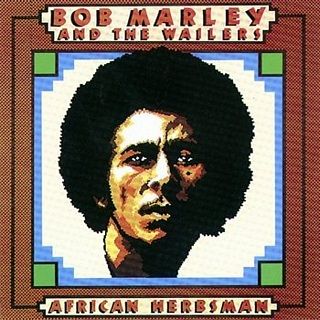Talkin' Blues is a live album by Bob Marley & The Wailers, released in 1991.
link
Thursday, July 29, 2010
Babylon by Bus
Babylon By Bus is a live album released by Bob Marley & The Wailers in 1978. The album was recorded mostly at the Pavillon de Paris in June 1978, during the Kaya Tour. Like the 1973 album Catch A Fire, the first release had something of a novelty cover. The windows of the bus on the front cover were cut out, revealing part of the inner sleeve. As this was a double album, the listener had a choice of four different scenes to view through the windows.
link
link
Live!
Live! is a Bob Marley & The Wailers live album, released on 5 December 1975. Live! was recorded 18 July and 19 July 1975 at the Lyceum Theatre in London. The performance remains one of Marley's most famous.
link
link
Confrontation
Confrontation is a roots reggae album by Bob Marley & the Wailers, released posthumously in May 1983, two years after Marley's death. The songs on this album were compiled from unreleased material and singles recorded during Marley's lifetime. The most famous track on the album is "Buffalo Soldier." Inside the album sleeve is an artist's depiction of the Battle of Adowa where Ethiopian forces defeated Italy in 1896.
link
Uprising
Uprising is a 1980 roots reggae album by Bob Marley & The Wailers. As Marley died the following year, Uprising was to become the final studio album to be released during his lifetime. This album is one of Marley's most directly religious, with nearly every song addressing his Rastafarian beliefs, culminating in the acoustic Folk classic, "Redemption Song".
link
Exodus
Exodus is the ninth studio album by Jamaican reggae band Bob Marley & The Wailers, released on June 3, 1977 on Island. Much of Exodus was recorded in London, while Marley recuperated from an assassination attempt. The success of the album propelled Marley to international stardom.
link
link
Rastaman Vibration
Rastaman Vibration is a roots reggae album by Bob Marley & The Wailers released on April 30, 1976. While the album was a big hit in the USA, becoming the first (and only) Bob Marley release to hit the top ten on the Billboard 200 charts (peaking at #8), it did not generate a significant hit single, although "Roots, Rock, Reggae" was the only Bob Marley single to reach the Billboard Hot 100 charts, peaking at #51. Synthesizers are featured prominently on this album, adding a breezy embellishment to otherwise hard-driving songs with strong elements of rock guitar.
link
link
Burnin'
Burnin' is a roots reggae album by The Wailers, released in 1973 (see 1973 in music). The fourth album by Bob Marley, Peter Tosh and Bunny Wailer (the last before Tosh and Bunny departed for solo careers and the band became known as Bob Marley & the Wailers), Burnin' opens with a signature song, the call to action "Get Up, Stand Up" and includes a more confrontational and militant tone than previous records, such as in another Marley standard turned into a #1 blues rock hit by Eric Clapton, "I Shot the Sheriff". The songs "Duppy Conqueror", "Small Axe", "Put It On" and "Pass It On" are re-recordings of songs previously released.
link
link
African Herbsman
African Herbsman is a compilation of The Wailers songs, released by Trojan Records in 1973, shortly after their major-label debut album Catch a Fire had been released by Island Records.
This album is a collection of some of the songs that The Wailers recorded in Jamaica together with producer Lee Perry from 1970 to 1971, before they received international recognition. Included are also two of the group's self-productions, "Trenchtown Rock" and "Lively Up Yourself", that both had been big hits in Jamaica
link
This album is a collection of some of the songs that The Wailers recorded in Jamaica together with producer Lee Perry from 1970 to 1971, before they received international recognition. Included are also two of the group's self-productions, "Trenchtown Rock" and "Lively Up Yourself", that both had been big hits in Jamaica
link
Catch a Fire
Catch a Fire is the major-label-debut album for Jamaican reggae band The Wailers, released on Island Records in 1973. The album established the band as international superstars. Leader Bob Marley in particular became world-famous. The socially aware lyrics and militant tone surprised many listeners, but others were attracted to songwriters Marley and Peter Tosh's confrontational subjects and optimistic view of a future free from oppression.
link
link
The Best of the Wailers
The Best of the Wailers is an album by The Wailers, released in August 1971.[1] Despite its title, it is not a compilation album.
The album was produced by Leslie Kong, who died of a heart attack at the age of 38 a week after the album was released
link
Subscribe to:
Comments (Atom)


